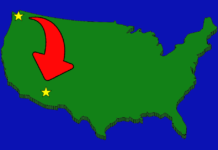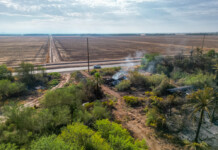The tragedies of September 11, 2001, as well as more recent events like Hurricane Gustav, serve as a wake up call to all Americans about what we need to do to be safe in our communities. In Arizona, I’m proud to say we’ve taken great strides to make certain our police, fire and emergency personnel will respond quickly in an emergency.
However, in a major emergency, the people who have the first chance to help victims may not be those first responders – instead, it’s often bystanders or the victims themselves. That’s why it’s critical that you do all you can to prepare and to protect yourself and your family. I’ve designated September as Arizona Preparedness Month so you can think ahead about how your family would handle a disaster and consider how you can help your community by getting involved.
The most important things you can do to prepare are to get an emergency supply kit, make a family emergency plan, be informed about how to respond to them appropriately and get involved in community preparedness efforts.
Your emergency supply kit should include food, water and any medicine your family would need for three days. A first aid kit, copies of important documents and clothes should be included in a kit you keep in your car.
Equally important is a family emergency plan. Establish a meeting point for the family for different situations. Set up emergency contacts out of state in case you can’t locate your family members.
Know where to learn details of an emergency. Which radio or television station will provide the evacuation plans for your area? Where can you find disaster information? This is why we created Arizona’s 2-1-1 system, available online at www.AZ211.gov. You can use it to find important information in the event of a disaster.
You can also volunteer with one of the organizations we have in Arizona that respond to crises. If you’re trained as a nurse or firefighter, we need your skills in times of crisis. If don’t have official training, you can find a chance to help with Community Emergency Response Teams (CERT) across the state. You can find out more about these programs at www.azdohs.gov.
While we never expect a disaster, taking some time to think about preparedness is the smart thing to do. As always, you can contact my office at (602) 542-1318, or visit my Web site at www.azgovernor.gov for other information and news in state government.
File photo


![Rizz party organizers say city ‘lying’ One of several flyers for a "TikTok rizz party" is taped to a door in the Maricopa Business Center along Honeycutt Road on April 23, 2024. [Monica D. Spencer]](https://www.inmaricopa.com/wp-content/uploads/2024/04/spencer-042324-tiktok-rizz-party-flyer-web-218x150.jpg)
![Province writer opens the athlete’s mind in new book Tom Schuman, a Province resident, poses with a copy of his new book, "My Wide World of Sports," outside his home on May 2, 2024. [Monica D. Spencer]](https://www.inmaricopa.com/wp-content/uploads/2024/05/spencer-050224-tom-schuman-sports-book-web-01-218x150.jpg)






![Maricopa restaurateur makes Food Network connection [Namkeen Dhaba]](https://www.inmaricopa.com/wp-content/uploads/2024/04/439456716_377105198650519_7536248579664805896_n-218x150.jpg)

![Merging lanes incite more 347 anger A merging lane sign sits on the side of State Route 347 northbound lanes during evening traffic on April 30, 2024. [Monica D. Spencer]](https://www.inmaricopa.com/wp-content/uploads/2024/04/spencer-043024-adot-merging-lanes-347-web-218x150.jpg)



